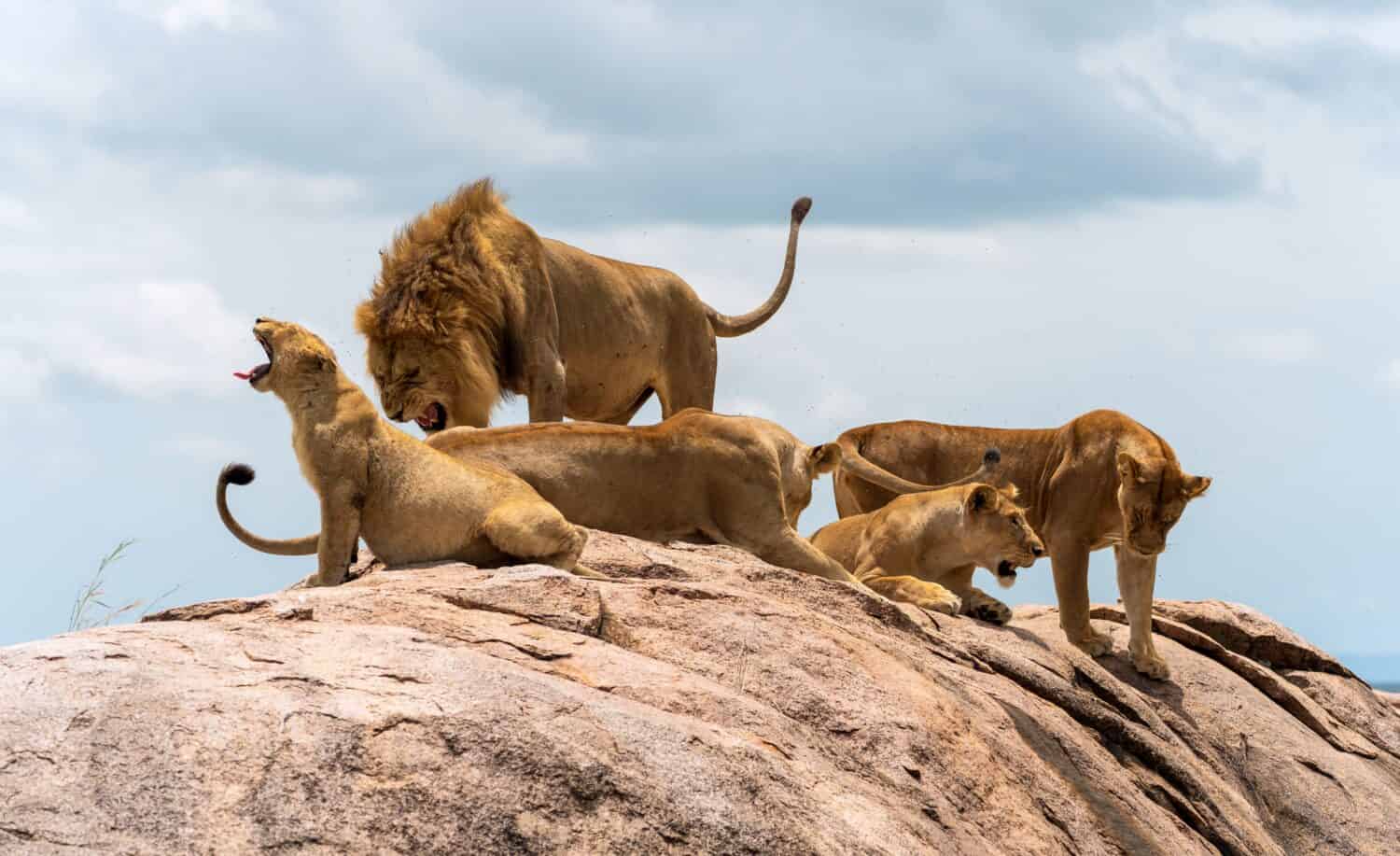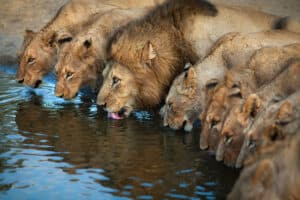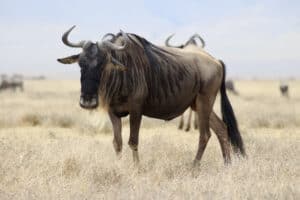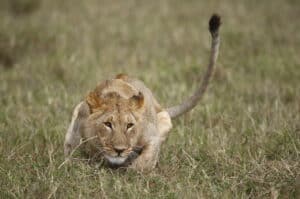Lions are one of the most recognizable animals on the planet. Nicknamed the King of the Jungle, the lion (Panthera leo) rules at the top of the food chain and has no natural predators. Lions do not mate for life, instead, they are a naturally polygamous animal that has multiple different partners over its lifespan. These apex predators will breed throughout the year and are not set on a certain reproductive schedule.
#1: Lions are Polygamous Creatures
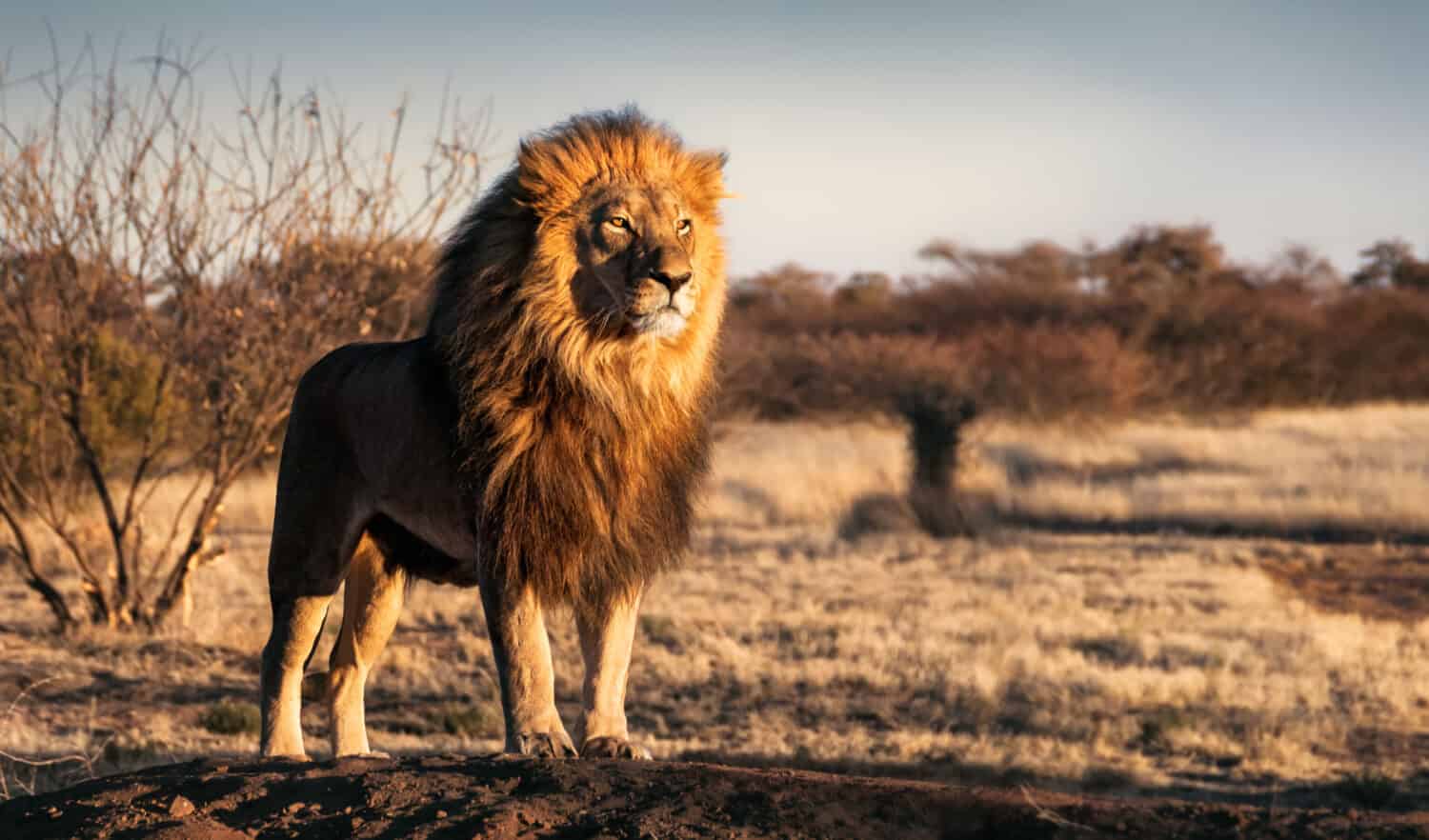
Lions don’t mate for life, and instead have multiple partners over the course of their lifetime.
©2021 Photography/Shutterstock.com
Lions are naturally polygamous creatures. They will have multiple partners over their lifetime, which varies. Male lions tend to live eight to ten years in the wild, whereas female lionesses live 15 to 16 years in the wild. However, even though both sexes are polygamous, female lionesses tend to limit themselves to one or two males in their own pride. Being polygamous encourages genetic biodiversity within a pride.
#2: Ongoing Mating Schedule
Unlike other mammals, there is no set-in-stone schedule for when a lion reproduces. They reproduce throughout the year. The reproductive schedule is entirely dependent on two factors: food availability within the pride and female hormonal cycles. Both of these factors play a role in when a lion’s reproductive season begins. The reproductive schedule is individualistic – not every lion in a pride is on the same timeline.
#3: Lionesses Can Suppress Reproductivity
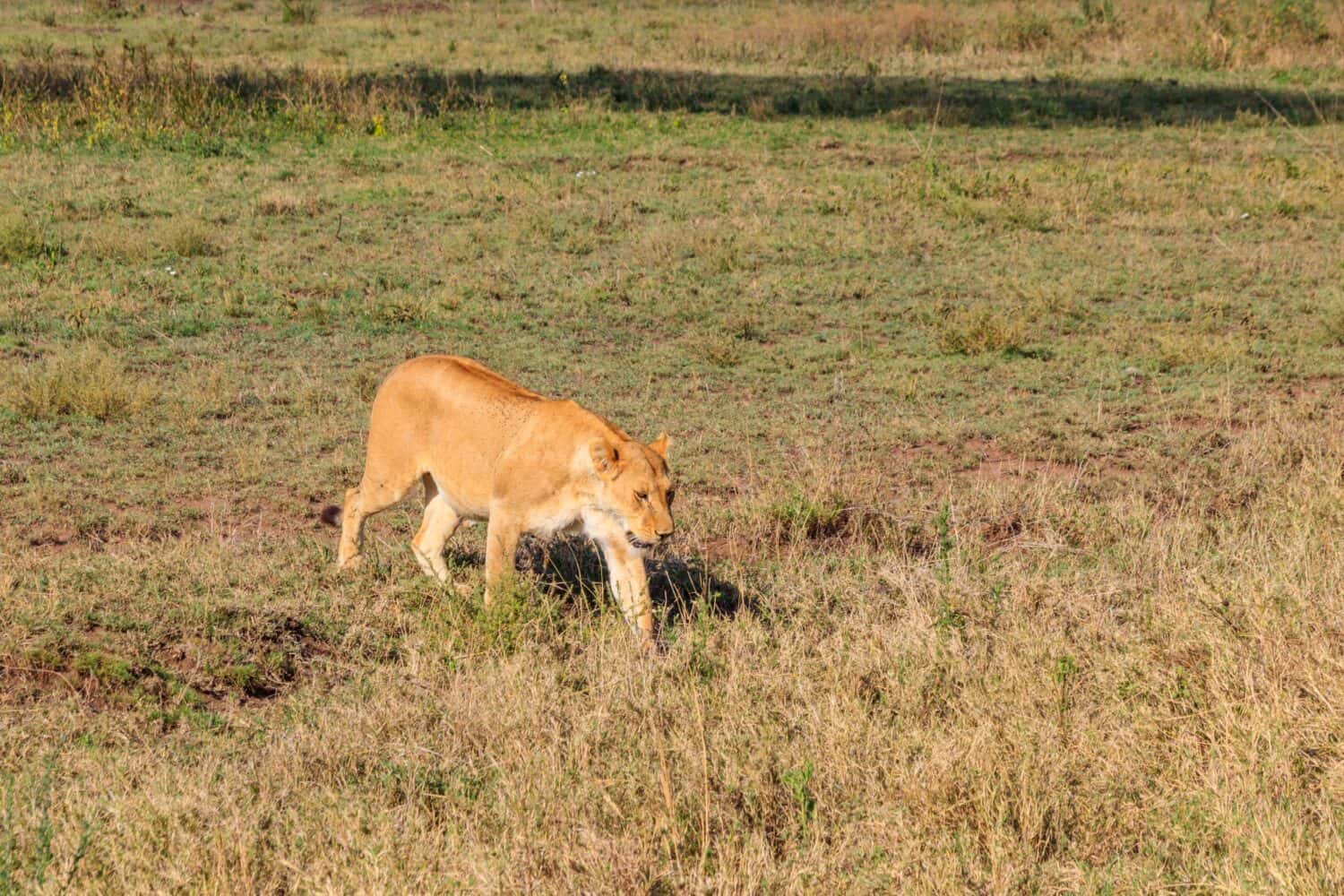
Lionesses have the ability to suppress their reproductive abilities when various factors are unfavorable.
©Olha Solodenko/Shutterstock.com
When there are various factors that might make it unfavorable to have cubs, lionesses can suppress their reproductive ability until it is a better time. These factors can include bad environmental conditions and external influences. Additionally, if there are simply too many cubs already in a pride, they will suppress their reproductive cycle until these cubs mature. This way, there’s no chance of cubs going hungry or losing the care that they need at birth.
#4: Lionesses Initiate Mating
Lionesses are typically the ones who will initiate mating when they feel ready to. When they are ready to do so, they will touch their head up against a male lion’s face. This is known as “head rubbing,” and it signals to the male that the female is ready to reproduce. This act also creates a stronger bond between the two potential mates.
#5: Lions Mate Young
Lions will begin to mate at two years of age, but then they reach their prime when they turn five. Both male and female lions are considered mature when they reach three to four years old.
#6: Cubs are Born Often
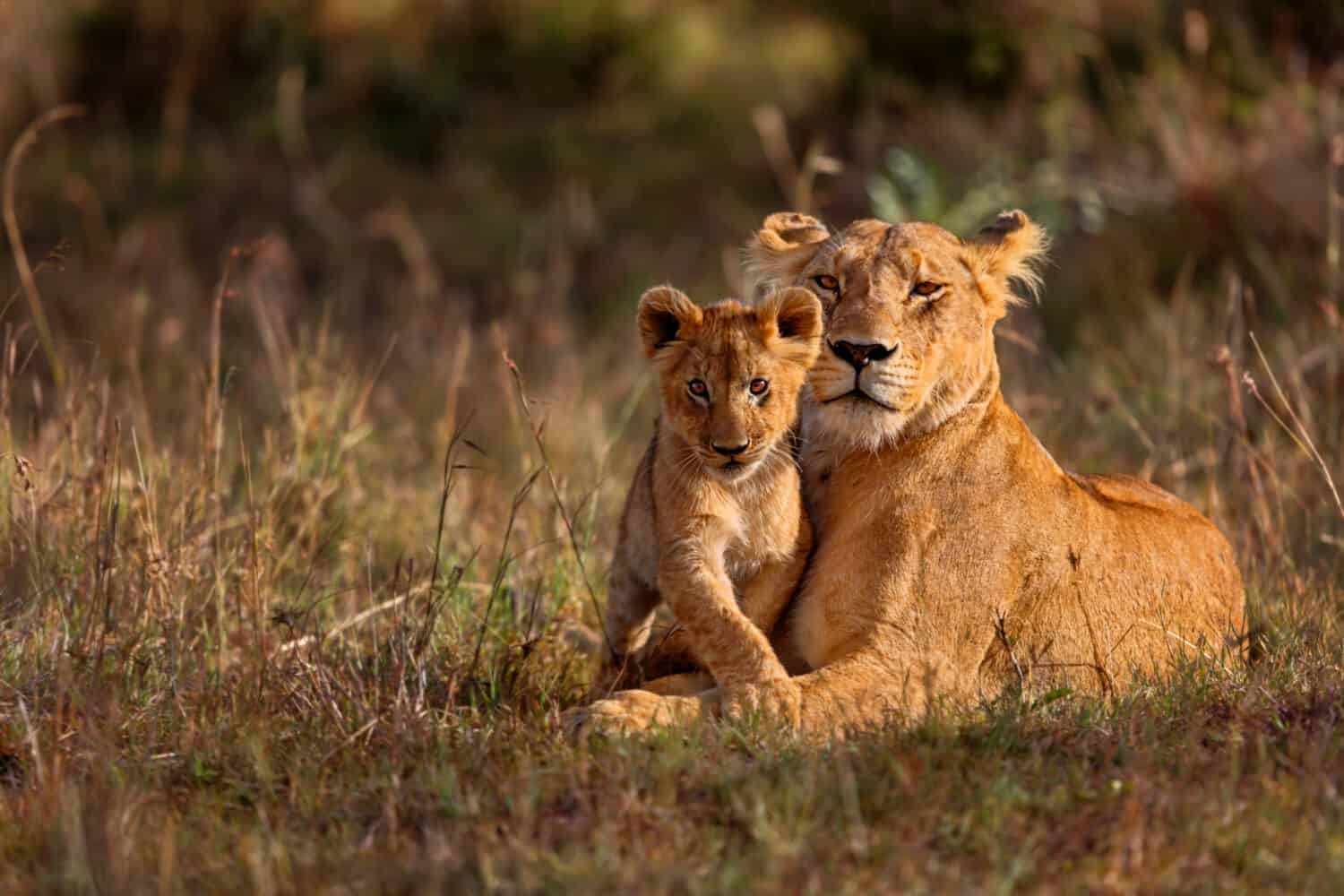
Lion cubs reach maturity around 3 to 4 years old.
©Maggy Meyer/Shutterstock.com
A lioness will have cubs often, typically about every two years. They can have upwards of six litters in their lifetime, and there are usually 2 to 5 cubs born in a litter. The gestation period for a lioness is about 105 to 112 days long.
#7: Cubs Mature Quickly
When a lioness is about to give birth, she will retreat to a den that she’s chosen already. This can be a covered patch of grass or a cave, anything that offers shelter. It will also be close to water and away from the pride. When cubs are born, they are born blind and open their eyes six days after birth. At six weeks, they will go with the lioness and learn to hunt. When the cubs reach 15 months, they can hunt and kill small prey. Finally, at two years, the lioness will more than likely be pregnant again, and the cubs are sent off on their own. Some female lions are allowed to stay behind in the pride, but the dominant male in the pride will drive out all the young male cubs.
#8: Mating Duration is Short
Lions live in prides, a group of lions that live in and protect the same territory together. They hunt for food and share meals together. When two lions mate, they do so quickly to not leave the pride vulnerable. This also allows the mating lions to not be left vulnerable as well, and so they can return to the pride.
Conclusion
To summarize, lions do not mate for life. These carnivorous mammals are inherently polygamous, and have multiple different partners over the course of their lifetime. They do this in order to promote genetic biodiversity within the pride. They have a variety of mating habits. Lionesses will initiate the mating ritual by rubbing heads with the male lion, creating a strong bond between the two. Male lions will often not be present in the day-to-day of raising cubs, and the lioness will teach them to survive.
Thank you for reading! Have some feedback for us? Contact the AZ Animals editorial team.

